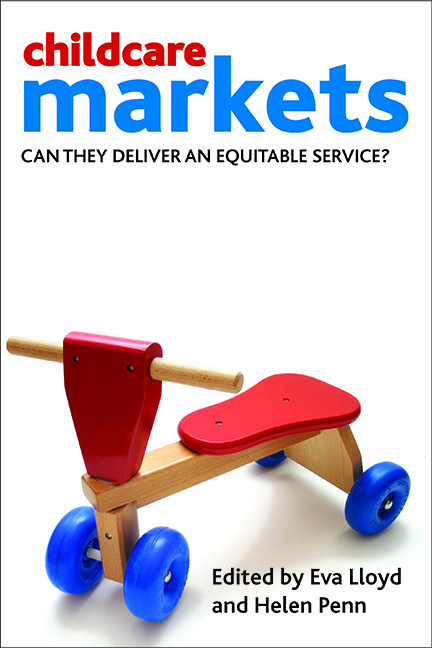five - Tinkering with early childhood education and care: early education vouchers in Hong Kong
Published online by Cambridge University Press: 01 September 2022
Summary
A story to begin
On 11 October 2006, the chief executive of the Hong Kong Government announced the introduction of a voucher scheme which was intended to make affordable and quality early education more accessible to children aged 3 to 6. The announcement sparked heated debate about which children should and which should not be included in the scheme (Yuen, 2007). In the following months, local news switched focus to the confusion over how the scheme was to be operated in the school year 2007–08. As issues relating to the new policy gradually unfolded, the concerns were brought to the attention of the government and a mid-term review of the first five-year policy cycle was requested.
On 24 May 2009, more than 4,000 educators, parents, advocates and legislators took to the streets to press the government for immediate action. Mounting discontent finally led to the formation of a working group to conduct a policy review (Information Services Department, 2009b). On 23 January 2011, another public rally was mobilised in response to the report of the Working Group on Review of the Pre-primary Education Voucher Scheme (2010). This time not just educators, parents, advocates and legislators, but also many more young children, were involved. Their demands were no longer focused on the voucher scheme. It was instead a demand for 15 years of universal education, i.e. free early education for 3- to 6-year-olds plus nine years of compulsory education and three years of free senior secondary education. The rally, unfortunately, did not lead to the passing of a pertinent motion at the Legislative Council. Attempting to respond to public demand, the government issued a press release on the same day, stating that the proposed governance structure of universal provision could possibly constrain parental choice and the flexible development of the sector; therefore, it was not advisable to simply borrow overseas experiences for direct use in the local context (Information Services Department, 2011).
Early childhood education and care in a market Context
The market approach to early childhood education and care services, either before or after the introduction of the voucher scheme, is a policy direction long adhered to by the British colonial administration before the sovereignty of the city reverted to China in 1997 (Yuen, 2010a).
- Type
- Chapter
- Information
- Childcare MarketsCan They Deliver an Equitable Service?, pp. 79 - 96Publisher: Bristol University PressPrint publication year: 2012

